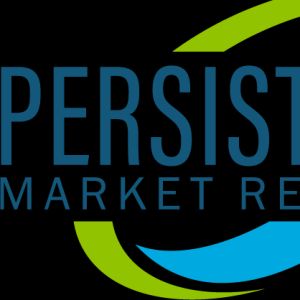Polyvinyl Acetate Adhesives Market Future Demand Analysis With ForecastPosted by Pradnya on April 16th, 2021 The chemical industry is focused to keep the business operations running along with ensuring the labor safety amid the COVID-19 pandemic. To recover the losses created by the decline in demand for various products, the companies are capitalizing on the escalating demand for products such as disinfectants and personal protective equipment. Many leading players in the chemical industry have expanded their business to enter into the production of safety products. Companies are resorting to advanced technologies in production to reduce the dependence on work-force. They are increasingly adopting advanced digital capabilities to integrate supply chain and logistics to ensure the effective delivery of products. The industry heads are seeking the real-time situation of their supply chains to identify potential weaknesses, especially in terms of geography, and strengthen it. The financial disclosures are being extended beyond the usual financial statements to deal with the risks that have aroused amid the COVID-19 pandemic. Polyvinyl acetate is a rubber synthetic polymer, or plastic. It belongs to polyvinyl ester family and is categorized as a thermoplastic, meaning it melts at high temperatures and is elastic and flexible at room temperature. Polyvinyl acetate is a vinyl polymer and is prepared by polymerization of vinyl acetate monomer. Polyvinyl acetate adhesive is glue containing this compound and is used in the form of emulsions. Polyvinyl acetate emulsions exhibit superior compatibility with modifying resins and can be used for broad range of applications through formulation. In addition to compatibility, molecular weight (grade), the amount and type of protective colloid used to produce the emulsion affect adhesive properties. Variations in type and quantity of protective colloid used in producing the polyvinyl acetate emulsion have a major impact on the performance of the adhesive film. Polyvinyl acetate adhesive can vary in moisture sensitivity by changing the content and type of the protective colloid. Polyvinyl acetate based adhesives have superior strength and offer good adhesion to a variety of surfaces. They are non toxic, do not pose health risks and are environmentally friendly. Polyvinyl acetate adhesive is a component of a widely used glue types, commonly referred to as white glue, wood glue, school glue, carpenters glue, Elmer’s glue or PVA glue. Polyvinyl acetate glues are easy to use, since they can be cleaned up with water, do not give off any hazardous fumes and are safe to handle without gloves or other skin protection equipment, but they do not hold up well in moist conditions. Many common types of glue, including standard school glue, contain polyvinyl acetate. Polyvinyl acetate adhesive glues are very easy to use and economical. Yellow carpenter’s glue, used for woodworking and other construction projects, is also polyvinyl acetate adhesive. Polyvinyl acetate adhesive works best on porous materials, such as wood, paper, and cardboard, and is also recommended when gluing vinyl and leather. Many polyvinyl acetate glues are white, and they are used for a wide variety of purposes, such as making collages, paper crafts, and paper packaging. These adhesives are acid-free, which makes them especially suited to projects like bookbinding, where an acidic adhesive would degrade the paper quality. The continuous use of polyvinyl acetate as an ingredient for common glue and other commercial glues will be a driving factor for polyvinyl acetate adhesive industry. The growing consumption of polyvinyl acetate adhesives in emerging economies and of lack of environmental friendly alternatives are other instrumental factors for the growth of this industry. However, polyvinyl acetate adhesives are not effective on any surface that is non-porous. In addition, they are mostly effectively near room temperature and cannot be used for outdoor winter tasks which could hamper the growth of this market. Asia Pacific leads the world in consumption of polyvinyl acetate adhesives followed by Europe and North America. China is the dominant market in Asia Pacific followed by Taiwan, Mexico, Japan, India, Indonesia, Thailand and Republic of Korea. Over the next few years Asia Pacific will increase its grips over the polyvinyl acetate adhesives market and would remain the world leader. Some of the key players in this market are
Pre-Book Right Now for Exclusive Analyst Support @ https://www.persistencemarketresearch.com/checkout/6394 Like it? Share it!More by this author |


